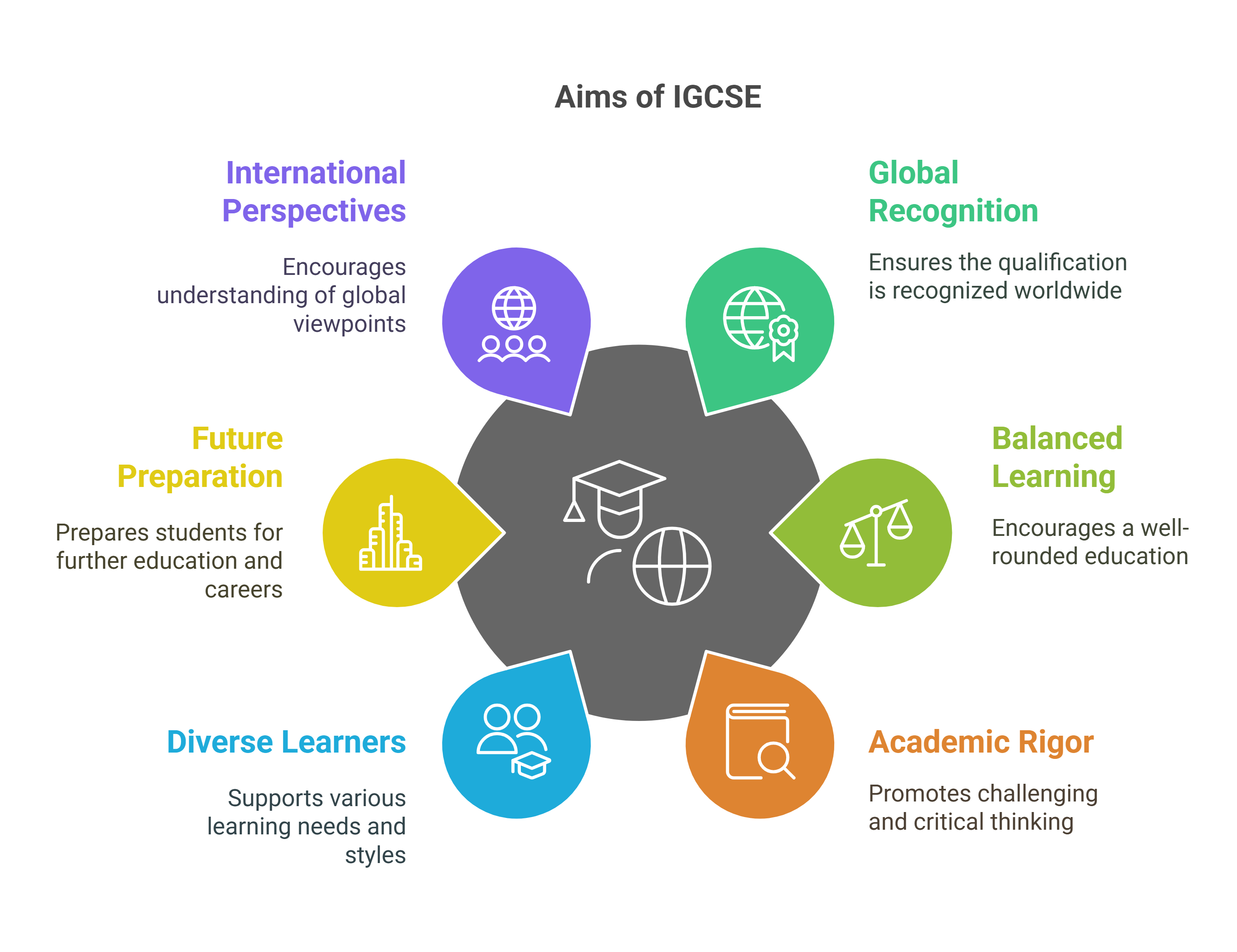Your basket is currently empty!

The International General Certificate of Secondary Education (IGCSE) is an internationally recognized qualification for secondary school students, typically taken by students aged 14 to 16. It is equivalent to the GCSE in the United Kingdom and serves as a preparation for further education, including A-levels, the International Baccalaureate (IB), or vocational studies. Here are the key aims of the IGCSE:
1. Provide a Globally Recognized Qualification
- The IGCSE is widely recognized by universities and employers around the world as a standard for secondary education.
- It ensures students gain qualifications that are transferable and applicable across various education systems.
2. Encourage Broad and Balanced Learning
- The curriculum is designed to offer a wide range of subjects, allowing students to study both core subjects (e.g., mathematics, science, and languages) and electives (e.g., arts, business studies, and ICT).
- It encourages students to develop a broad foundation of knowledge and skills.
3. Promote Academic Rigor and Critical Thinking
- The IGCSE is structured to challenge students academically and intellectually.
- It emphasizes critical thinking, problem-solving, and analytical skills that are valuable in higher education and beyond.
4. Cater to Diverse Learners
- The IGCSE offers a flexible curriculum with core and extended levels in many subjects, allowing students of varying abilities to achieve qualifications that reflect their potential.
- It supports students from different cultural and linguistic backgrounds by providing assessments in various languages.
5. Prepare Students for Future Education and Careers
- The IGCSE equips students with foundational knowledge and skills necessary for advanced studies such as A-levels, IB, or vocational programs.
- It also helps students build competencies such as communication, teamwork, and time management, essential for higher education and employment.
6. Foster International Perspectives
- The curriculum incorporates global contexts and encourages students to develop an understanding of different cultures, global issues, and perspectives.
- It promotes international-mindedness, essential in an increasingly interconnected world.
7. Ensure Fair and Reliable Assessment
- The IGCSE uses diverse assessment methods, including coursework, practical exams, and written tests, to evaluate students’ abilities comprehensively.
- It ensures that assessments are rigorous, unbiased, and internationally benchmarked.
In summary, the IGCSE aims to provide a well-rounded, challenging education that prepares students for further studies, personal development, and global opportunities.
